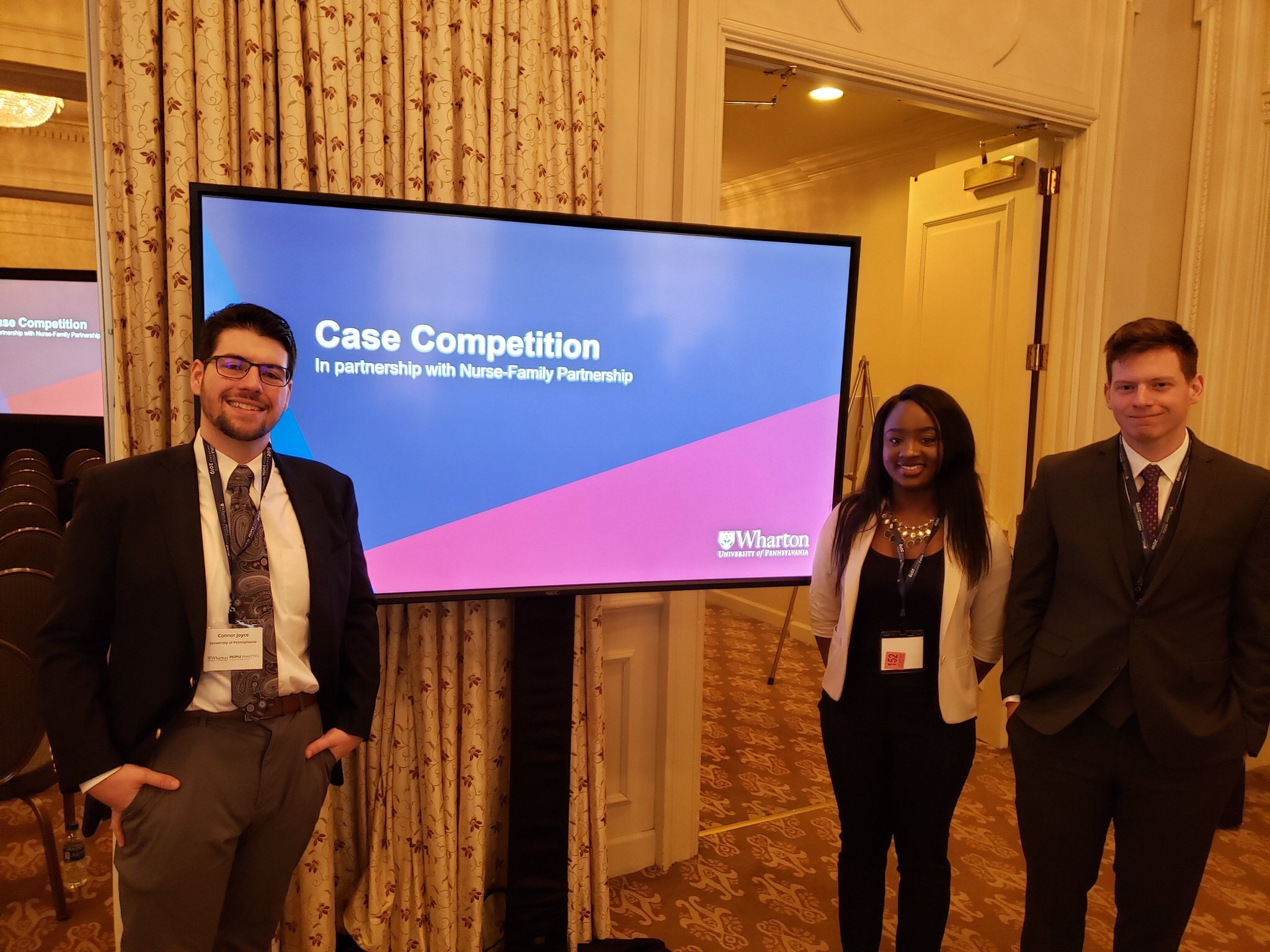
(L-R) Connor Joyce, LPS’19; Amarachi Nasa-Okolie, LPS’19; and Eric Lyons, LPS’19.
Thursday, May 23, 2019
By Karen Brooks
The problem with performance reviews, according to workplace talent and leadership expert Marcus Buckingham, is that they are useless.
“They don’t tell us anything about the employee, they don’t help employees get better, and they certainly aren’t giving us the correct information we need to hire, fire, train, and promote our people,” says Buckingham, a keynote speaker at the sixth annual Wharton People Analytics Conference in April.
Buckingham’s presentation struck Master of Behavioral and Decision Sciences student Connor Joyce, LPS’19, because he’s “always been fascinated with the human capital environment—how we develop ourselves at work and why and how decisions are made at work.” Joyce attended this year’s conference, which highlighted the latest data-driven approaches to employee management, with his classmates Amarachi Nasa-Okolie, LPS’19, and Eric Lyons, LPS’19. The three students partnered to win the event’s case competition, besting finalists from Harvard, MIT, Northwestern, and the Indian Institute of Technology.
Business leaders’ increasing focus on measuring diversity, skill gaps, retention rates, pay equity, and employee feedback has brought people analytics to the forefront, with today’s HR professionals applying data analysis to recruiting, hiring, evaluating, promoting, and compensating their organization’s employees. Every year, Wharton People Analytics poses a related challenge to students from institutions around the world. The 2019 case competition tasked participants with determining the ideal caseload for clinicians from Nurse-Family Partnership (NFP), a national organization that sends nurses to support first-time moms-to-be in their own homes.
In reviewing NFP’s case and outcomes data, Joyce, Nasa-Okolie, and Lyons noticed that the organization had been treating all cases identically rather than taking into account that some families, depending on various risk factors, require more resources than others. The team members decided to assign a numerical “weight” to each case so that nurses visiting more resource-dependent clients would oversee fewer cases than those with lower-risk clients. Nurses’ caseloads, they proposed, should be determined based on the difficulty weight of all of their cases combined, rather than by the number of individual clients they visit.
“We won because we took this streamlined, holistic approach to evaluating risk and outcome,” says Joyce, who recently accepted a position as a behavioral scientist with Microsoft in Seattle. In February, he won the Professional Master’s category of Penn Arts & Sciences’ Grad Ben Talks event, where graduate students deliver TED Talk-style presentations, with his research review exploring artificial intelligence's effects on work. “We didn’t use the most advanced statistics, and we didn’t build out the most advanced training formula or the most advanced engineering prototype, but we did what was best for the case.”
Lyons, who is currently considering job offers in the field of digital technologies research, says the group’s submission stood out because of its efficiency. “We created a checklist where someone can simply click on different risk factors to determine an individual’s case weight. We wanted to go the extra step and think about ease of implementation, because you can have the greatest plan ever—but if it cannot be implemented, it’s useless.”
NFP’s leadership was so impressed with the team’s approach that the organization plans to apply their recommendations going forward.
“This could potentially help a woman out there—even just one woman who is going through her pregnancy and wondering how to keep her baby healthy and sustain her child and herself,” says Nasa-Okolie, who hopes to pursue a Ph.D. in operations, information, and decision sciences or healthcare management and economics. “We are helping someone out there. This is not about us—this is about them.”